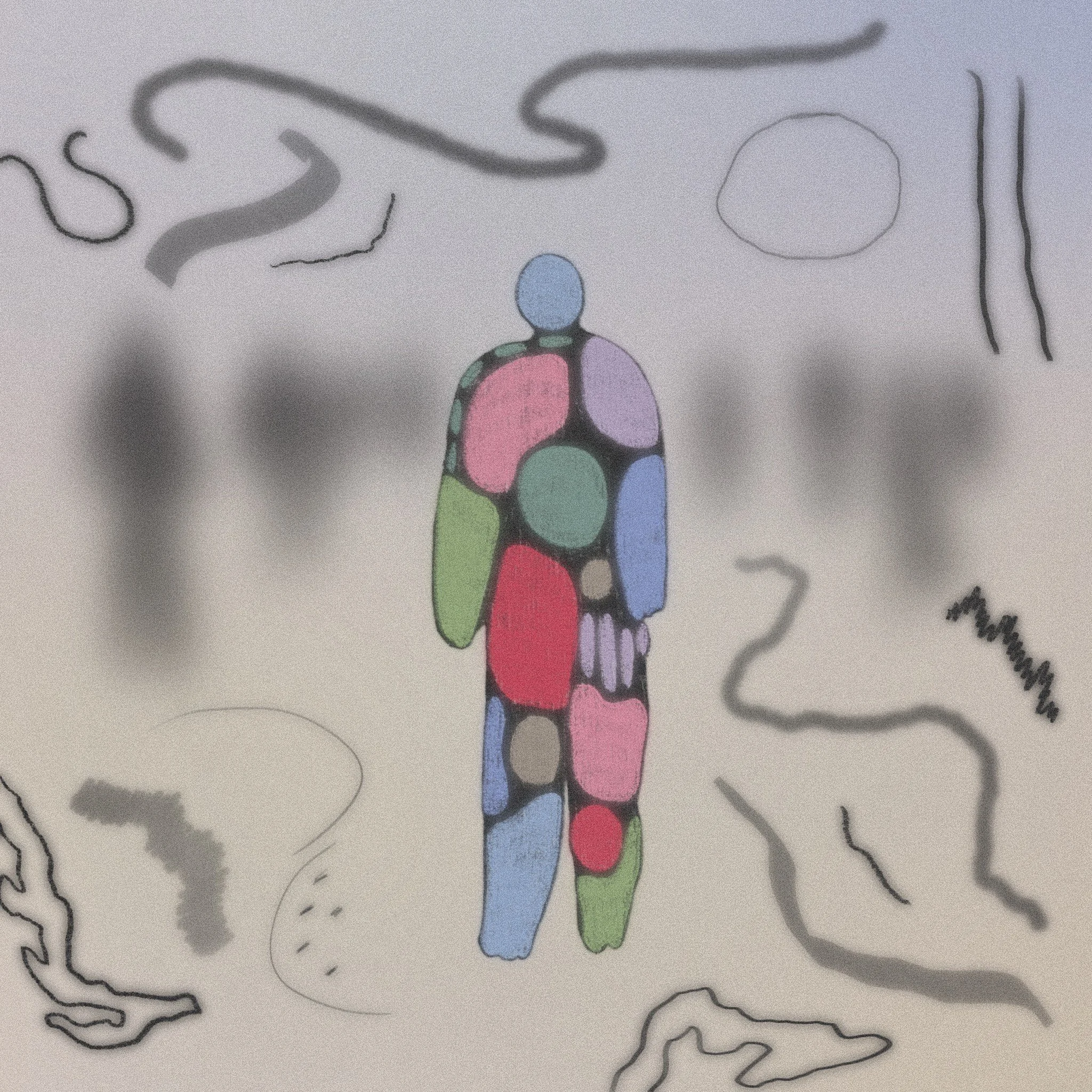Like, Being Yourself
Illustration by Beyza.
More and more often, I’m beginning to recognize my life as a long-winded process of reconciliation with being a person that has to live alongside other people. Before I’m about to begin a stage of my life (or even during), I fantasize about the person I’d be when I get there. Is it time I finally become the more realized version of myself that lives in the silences of delayed responses and missed cues? Or will this just be another environment that takes me years to learn to appreciate, becoming swallowed by nostalgia only to discover that I didn’t make much for myself to hold on to? This thought process results in a cleft that begs for congruence.
The gap between who I am and who I want to become has long bothered me. I’m a dreamer eaten up by a love for fiction, and this gulf poses as a personalized kind of insecurity with a penchant to haunt much of my interactions. In these other versions of myself, I’m a better writer, a more avid reader. I stick to my word and make the short film I always say I want to make. And most notably in these alternate realities, I am at ease with other people. I just know what I’m doing. I’m graceful, I’m assertive, I don’t repeat myself so much, I fumble less, I initiate conversations, the list goes on.
Recently, this dilemma has felt more desperate, more pressing. As an awkward teenager, I’d always assumed that at some point I’d figure something out along the way, but that revelation hasn’t dropped by yet. Starting my first ever job has come with the knowledge that I won’t possibly have two-to-four years here to make it my own. That much of my twenties will not be so easy as to let me sink into my surroundings and belong to them. I just feel like I’m flailing my way around, trying to guess what my peers must have caught on to ages ago. I can try to be kind to myself and take it one day at a time, but time hasn’t felt too kind to me. It skimmed through me so fast that it didn’t let me learn anything.
Much of this essentially whittles down to how soon can I perfect this performance? I spend so much time in my head during the rehearsal that I forget to consider the external factors that affect this performance, i.e.: other living, breathing people.
In the age of influencers, there’s an increased sense of personal branding that extends to all of us, even if we don’t have a “brand” to present. It’s reinforced in our social media presence, our resumés, our etiquette; we need to have a well-curated and established sense of self in order to develop our place among each other. The roles we play seem to be driven less by responsibility and more by how well we can embody the idea of what that role is meant to be.
As this phenomena is increasingly facilitated by capitalist sentiments of individuality and branding everything and anything, it creates a rift that alienates the subject (me) from the end goal (Me). And afflicted with insatiability, my current unkempt self will continue to be incongruous with the self that longs to be a part of this world at full capacity.
This gap is articulated through Kayla in Bo Burnham’s Eighth Grade. Kayla is a middle-schooler going through her final week of eighth grade who makes YouTube videos in her bedroom. In these videos, she gives advice on self-confidence and making friends, though it’s clear to the audience that this is advice that she is struggling to apply to herself. She refers to herself and her experiences in the third-person, providing thoughtful insight only to cut to an awkward follow-through. She is a character that is able to embody the dissonance between the private self as it fumbles to catch up with the public self. Of waltzing through your life hovering behind yourself until you learn to embody your role.
It’s difficult for me to pinpoint where this gap begins and where it might end. I can tell when my own idealism generates dissatisfaction and disappointment. And Kayla perfectly illustrates the frustration of your own incompetence when compared to an idealized, reformed self that lives in your fantasies but refuses to creep beyond it. Particularly in relation to the social internet that presents an arena for comparison.
I don't know what happens to me if I stop trying.
Grasping for this version of myself that I'd like to be, that I've been imagining myself being for years, almost feels like a last resort. That I've failed somehow if I don't reach it, whatever failure in this case might look like. I don't want to imagine a reality where all my daydreaming has only anchored me. The portal in between is long and pitiful, but I'm an optimist against my will, and will naively hold onto daydreams even when I know better. It's a cycle that doesn't know how to end, so it only restarts.
Eighth Grade makes the argument that there is an honesty in our failed performances that must be cherished. Somehow, the pitiful portal is precious, and it’s an uncomfortable thing to consider, that this inconsistency in ourselves can be something other than embarrassing. And it’s difficult to see it as anything other than embarrassing when it just feels like a barrier to integration—what does it mean when you’re defined by the most precarious parts of yourself?
There is a renaissance waiting for me.
And yet, this chasm reveals more about us than our performances ever will. ◆
Rania Dawud is a writer based in Amman, Jordan. She frequently ponders on the little phenomena in our lives and attempts to capture them in writing. You can find her on Instagram.

